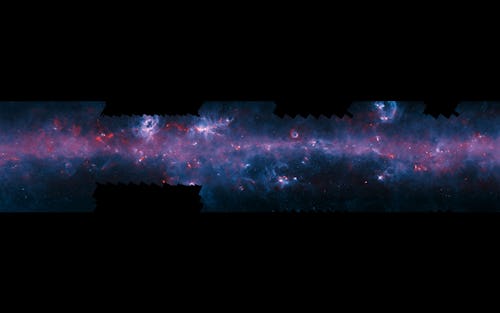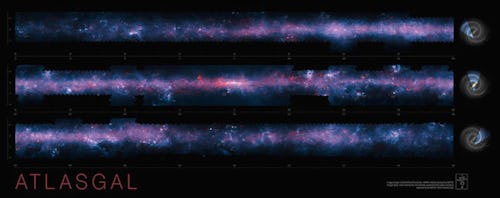
Astronomers have created a breathtaking composite image of the Milky Way — in a wavelength of light in which we've never seen it mapped.
Using the Atacama Pathfinder Experiment telescope in Chile, astronomers mapped the galaxy in submillimeter wavelengths that fall between infrared light and radio waves on the electromagnetic spectrum. Looking at the cosmos in submillimeter wavelengths lets astronomers see and study the super-cold gas and dust that make up the Milky Way:

The Milky Way is a spiral-shaped galaxy about 100,000 light-years across and about 1,000 light-years thick — it's sort of like a very wide but very short cylinder. So what we're looking at here is essentially a cross-section (like what you get if you chop up a cucumber) of the part of the galaxy that is visible from the Southern Hemisphere.
On the right you can see which section of the Milky Way each strip corresponds to:

Looking at the universe in different wavelengths like this is useful for spotting new features and better understanding our own galaxy.
As a bonus, there's a video that scans through the whole image, complete with spacey music:







